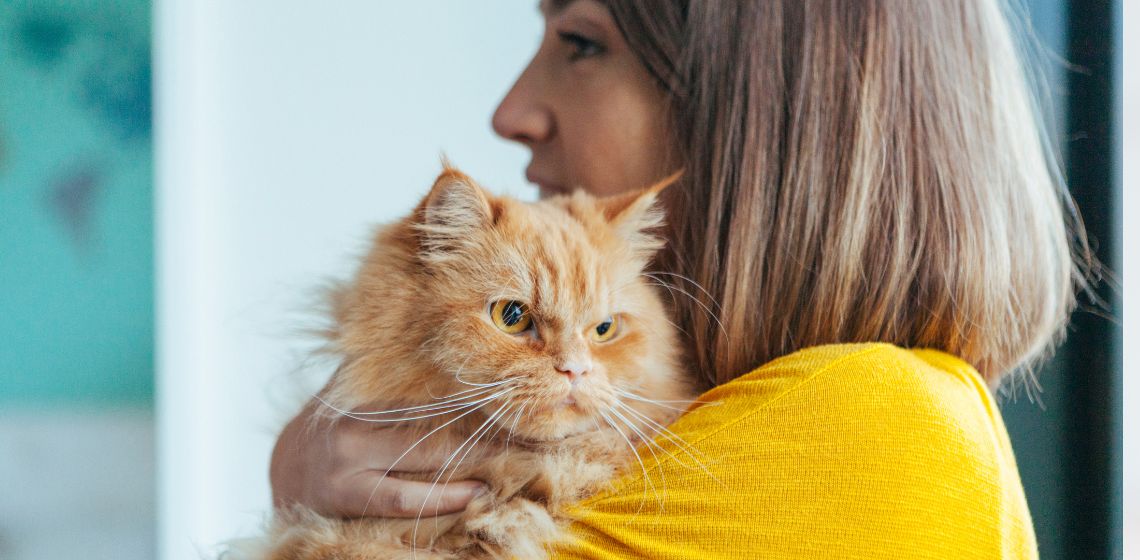Table of Contents
1. Is it okay if my cat munches on the dog’s food?
If your cat periodically munches dog food as an occasional snack, it is unlikely to be a problem. However, long-term feeding of dog food to a cat should be avoided as it lacks certain nutrients that are required by cats. Taurine is added to cat food but is often not added to dog food according to PetMd. Feeding your companion, a diet formulated to meet the nutritional needs of cats is necessary.
2. Why is my cat running around like a maniac in the apartment?
Cats can get the “zoomies” the same way dogs can! Your cat may be crying out for attention or even mental stimulation. Try to interact with your cat by playing with a laser pointer or a toy mouse!
3. Can I give my cat a human snack?
It very much depends on the snack! A small bite of boiled chicken would be okay; however, care must be taken to not give overly fatty food or foods containing garlic/onions or other spices that can be harmful. A lot of adult cats are lactose intolerant, so providing dairy snacks may prove to be problematic. Additionally, giving your cat a novel food may result in diarrhea or other forms 0f gastrointestinal upset. Consider speaking with your veterinarian about appropriate treats.
4. Should I bathe my cat?
Cats are often referred to as fastidious groomers. It is unlikely that your cat will need a maintenance bath unless there is an underlying skin condition present or if your cat has become visibly dirty or developed a strong odor.
5. What if my cat keeps knocking things off shelves?
Cats by nature are curious and are often looking for ways to entertain themselves. If your cat is doing this behavior at home, you may want to start looking into other ways you can provide mental and physical enrichment for your cat.
6. Can cats drink milk?
Some cats can tolerate small “snacks” of milk, but a large portion of adult cats are lactose intolerant. Drinking milk in these cats could result in gastrointestinal upset, including diarrhea. In most situations, providing milk to cats should be avoided. You can learn more about this here.
7. Why does my cat suddenly stare at nothing?
Cats can stare for a variety of reasons from curiosity to fear to confusion. Sometimes a cat that is staring at what seems to be nothing, may be trying to understand a noise that was not appreciated by their human counterparts. Cats also tend to hold the gaze of their human counterparts. Here is an article that dives into this topic further!
8. Should I worry if my cat sleeps all day?
It is estimated that cats sleep 12-16 hours in a day according to PetMD. If your cat has historically been very active and is now sleeping more, you should schedule an appointment with your veterinarian as this may be a sign of illness.
9. Is it normal if my cat likes belly rubs but then attacks my hand?
The abdomen is a very sensitive and vulnerable location to pet your cat. It is not uncommon that a cat may allow this behavior briefly before becoming overly stimulated and retaliating. This may also be an attempt at initiating play. Learn more about biting in cats here!
10. How often should I take my cat to the vet for a checkup?
Cats without health issues should be seen by a veterinarian twice yearly. Twice annual appointments are beneficial as cats age quicker than people and can hide illness well. Patients with chronic illnesses may require more frequent veterinary visits to monitor their overall condition.
Conclusion
Our goal as cat owners is to ensure a good quality of life for our furry companions. When questions come to mind regarding the best care for your cat, it is important to go to a reliable source. Your veterinarian will be able to answer questions during routine medical visits. Do not hesitate to reach out to The Vets to schedule an appointment and to have your burning questions addressed!

Dr. Marti Dudley attended veterinary school at Ross University in St. Kitts, and completed her clinical year at Virginia-Maryland Regional College of Veterinary Medicine. Since graduating in 2014, Marti has worked as an associate veterinarian at a small animal practice in her hometown of Williamsburg, Virginia. She enjoys providing personalized care to patients and emphasizes the importance of preventative medicine. Marti shares her home with her husband and children, along with a menagerie of pets. In her spare time, she enjoys camping with her family and relaxing with her pets.








